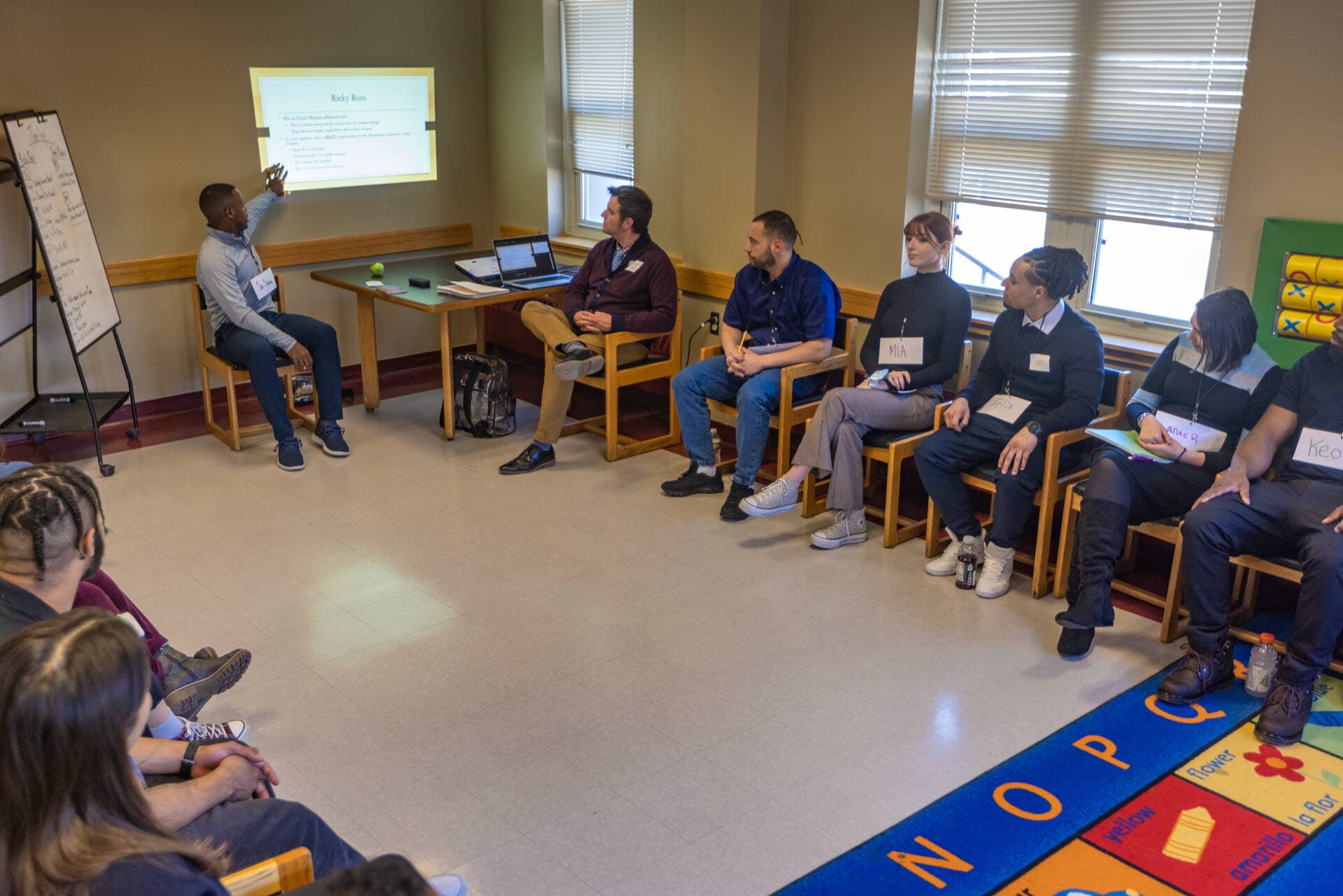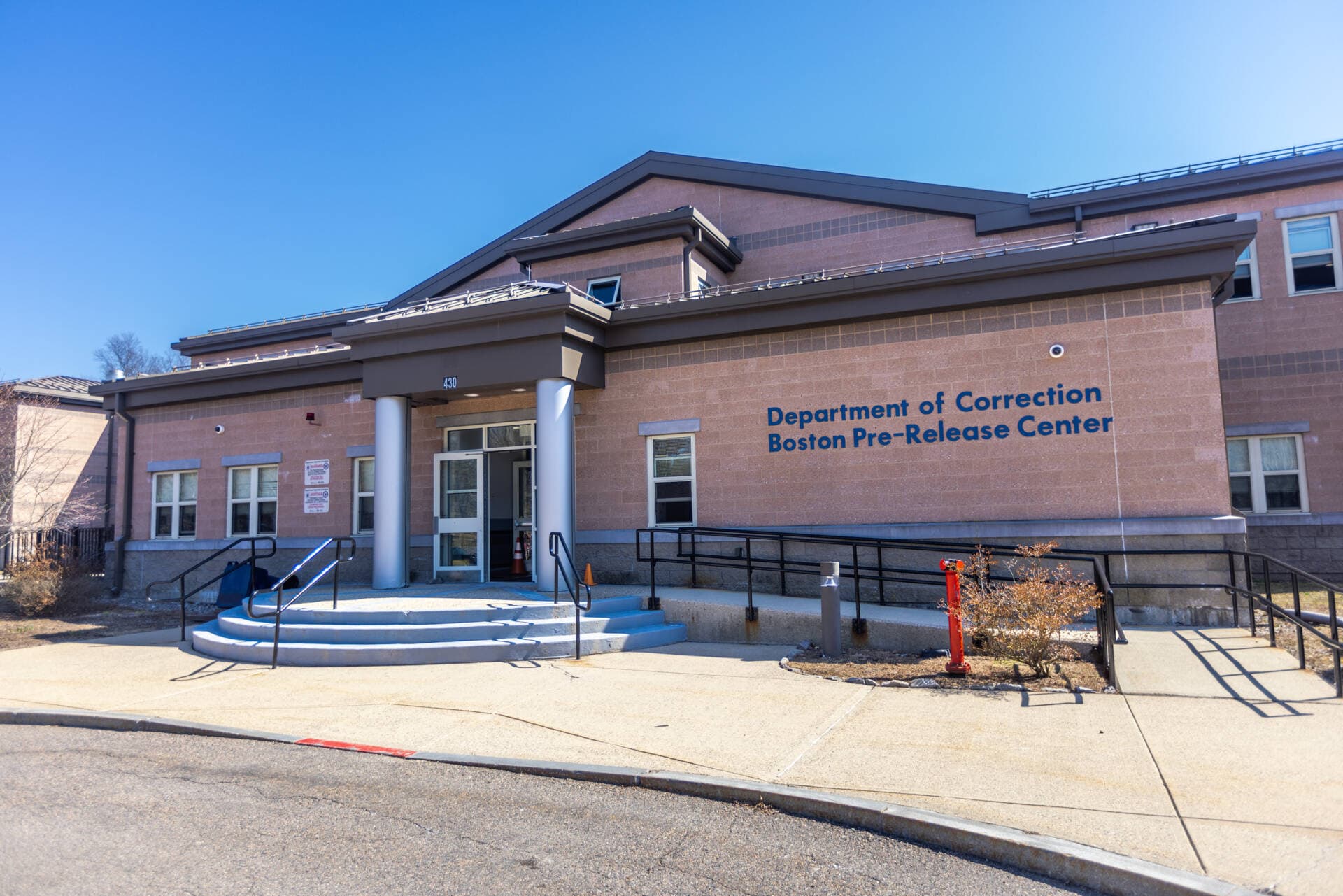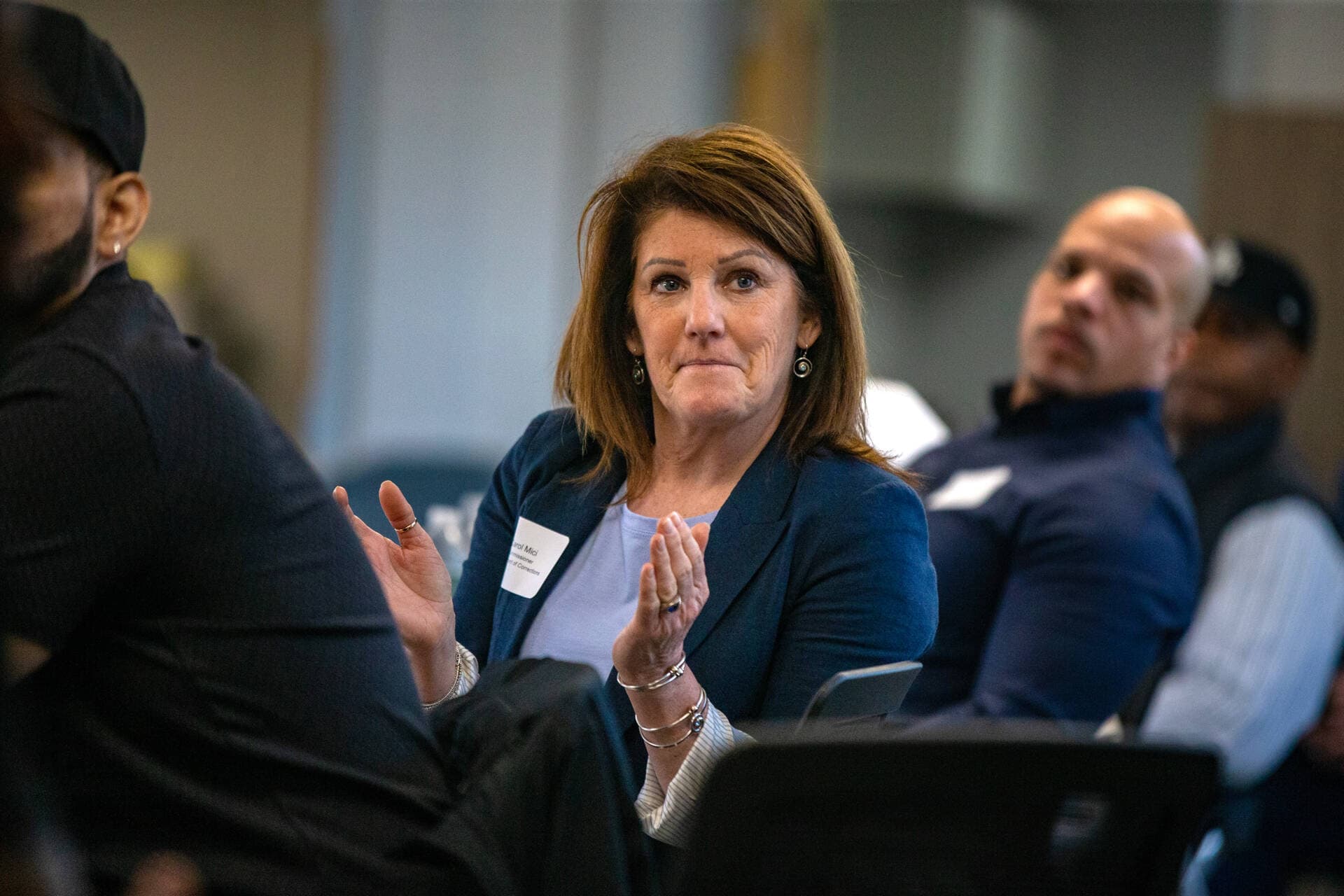Massachusetts public safety officials recently did something unusual: They invited politicians, social service workers and journalists into a state prison to demonstrate their efforts to help those being released from custody.
The invitation came as the Department of Correction makes its case for an overall budget increase for the next fiscal year. The department is also seeking more money for programs that help people transition to life outside of prison, a process known as "re-entry."
Last year, more than 2,000 people were released from state prisons, and many face difficulties finding jobs or housing with a criminal record, or adjusting to life after incarceration.
Gov. Maura Healey has included more than $10 million in her proposed budget to bolster prisoner education and re-entry services.
The visit provided a rare glimpse into one program known as the "School of Reentry." It provides education and job training to men who are about a year away from their release from prison.
In a classroom inside the Boston Pre-Release Center, a minimum security prison in Roslindale, School of Reentry instructor and attorney Aaron Bray asked a group of about 15 students to consider a case plucked from a real-life court docket. The students discussed whether they would agree to testify against a police officer in the case who had done something wrong.
Most said they would not.

"You can't testify even against dirty cops?" Bray asked one man. The man responded that he would refuse to testify, even if offered a reduced prison sentence, because then he would be labeled a "rat."
Bray's college-level course pairs incarcerated men with Brandeis University students to give the participants a deeper understanding of the criminal legal system, and for some, their own involvement in it. Some students consider their own cases and how to prevent future involvement in the system.
Roberto Rivera, 43, entered the school in 2020. He earned his high school equivalency and went on to get a certificate in automotive technology.
"When I graduated with my certificate in automotive, it showed me that I could have career," Rivera said. "Not just a regular job, but a career."
Rivera was released from prison four months ago and has continued his education. He expects to complete his associate's degree this spring.
"Every time I wake up in the morning and I see my friends doing good, everybody has their dream houses, their dream living, and I want that," Rivera said. "I had that, but I had it the wrong way. Now, I'm going to do it different. It actually feels better doing it this way because I don't wake up with anxiety wondering if I'm going to be shot, robbed, arrested."

The state Department of Correction is seeking $700,000 in new funding to double the number of students in the school to 50. Instructor Lisa Millwood says the 12-18 month program is immersive. Students also get practical help including obtaining a state identification card, and learning how to access housing and health care.
"We make sure that it's every day, all year round to help make them understand what led to your incarceration, and what do we need to do to make sure that you don't slide back because we know that does tend to happen," Millwood said.
According to the Department of Correction, 161 men have gone through the school since it started in 2016. Millwood said the overall reoffending rate for her students is less than 10%, and more than 90% of graduates are employed over a year later. On average, about 30% of all Massachusetts prisoners return to state custody within three years.
Healey's re-entry spending proposal includes funds for the school and other education and mentoring programs for those incarcerated. Much of the funding would pay for instructional programs on computer tablets. Other items include hiring a state-level official to help those leaving prison, and funding for a program that pairs formerly incarcerated people with those about to be released to help guide them to life outside of prison.
"The department needs to do better before people walk out the door," Department of Correction Commissioner Carol Mici told the group of visitors at the Boston Pre-Release Center. "And the best way to reduce recidivism and make somebody successful on the outside is through education"

Advocates for incarcerated people applaud the proposed spending increases, but they say more services are needed so more of the people released from prison each year don't end up back behind bars.
"The lack of opportunities during incarceration continues to serve as a barrier to re-entry," said Lizz Matos, executive director of Prisoners Legal Services of Massachusetts. "It's great to put funding into the re-entry space, but people spend so much time in these facilities, and we shouldn't reserve programming for people on their way out the door."
A bill before state lawmakers would require more programming and vocational education for those in custody. Prisoners' advocates testified before lawmakers last year that thousands of prisoners in Massachusetts are on waitlists for programs. Advocates said there are only 39 teachers in 10 prisons to help educate those behind bars.
The total proposed budget for the Department of Correction next fiscal year is more than $800 million dollars — up almost 5% over the current year's budget. National estimates suggest that the annual cost to house a prisoner in Massachusetts in 2020 was more than $114,000.
"entry" - Google News
April 24, 2023 at 04:38PM
https://ift.tt/iwhU4x1
As Mass. considers funds for prisoner re-entry, advocates say more is needed - WBUR News
"entry" - Google News
https://ift.tt/fyEXYdB
https://ift.tt/ZILpGuC
Bagikan Berita Ini














0 Response to "As Mass. considers funds for prisoner re-entry, advocates say more is needed - WBUR News"
Post a Comment